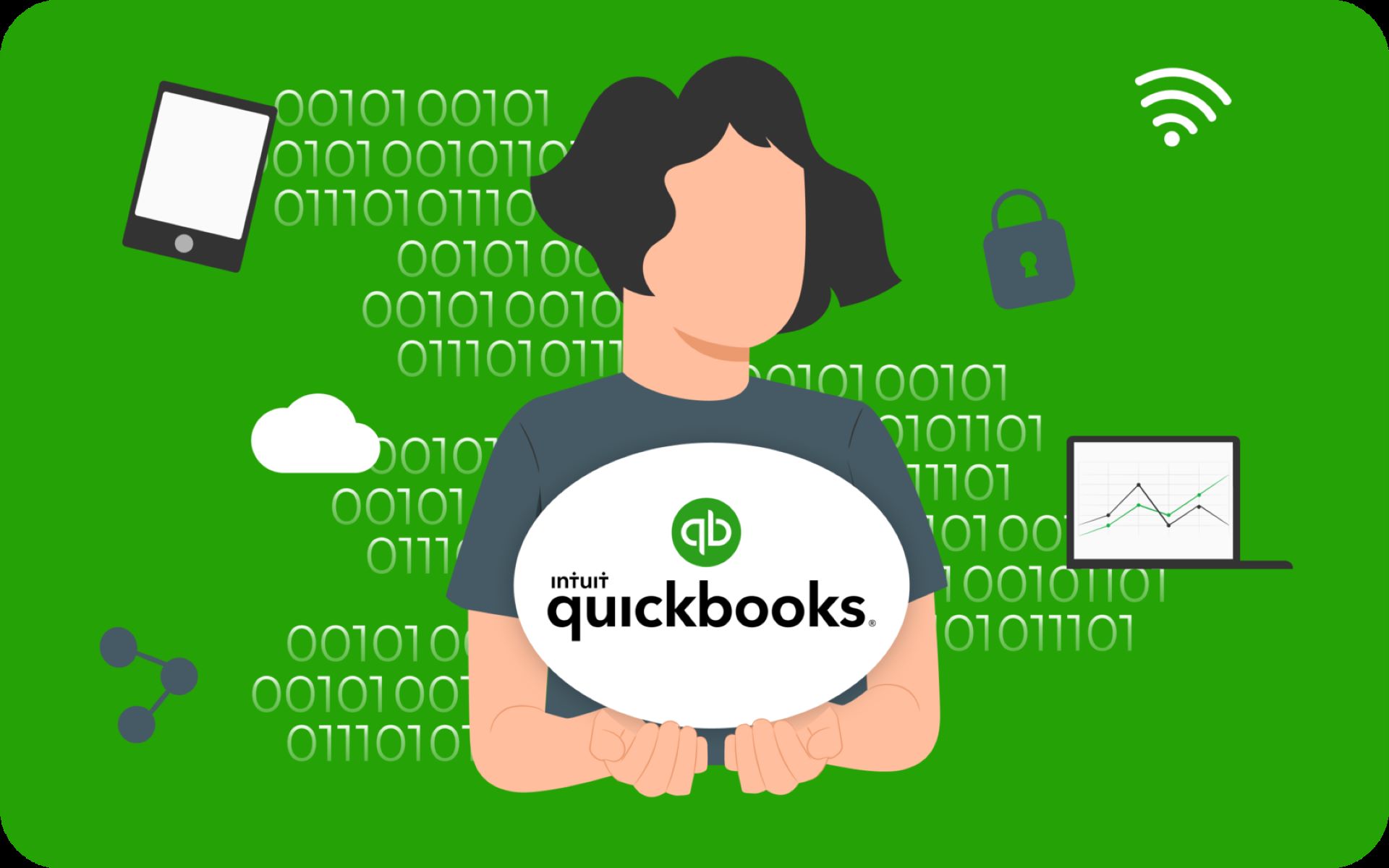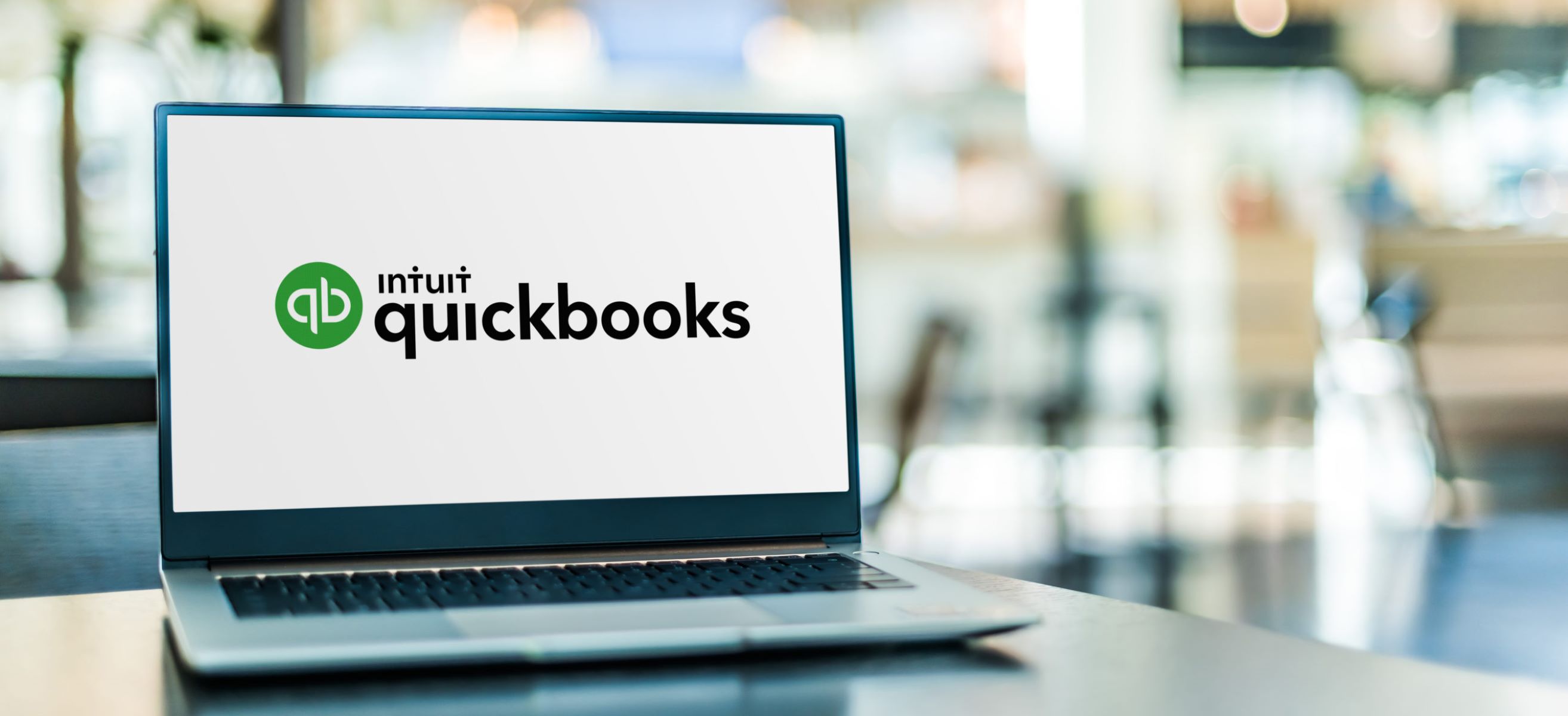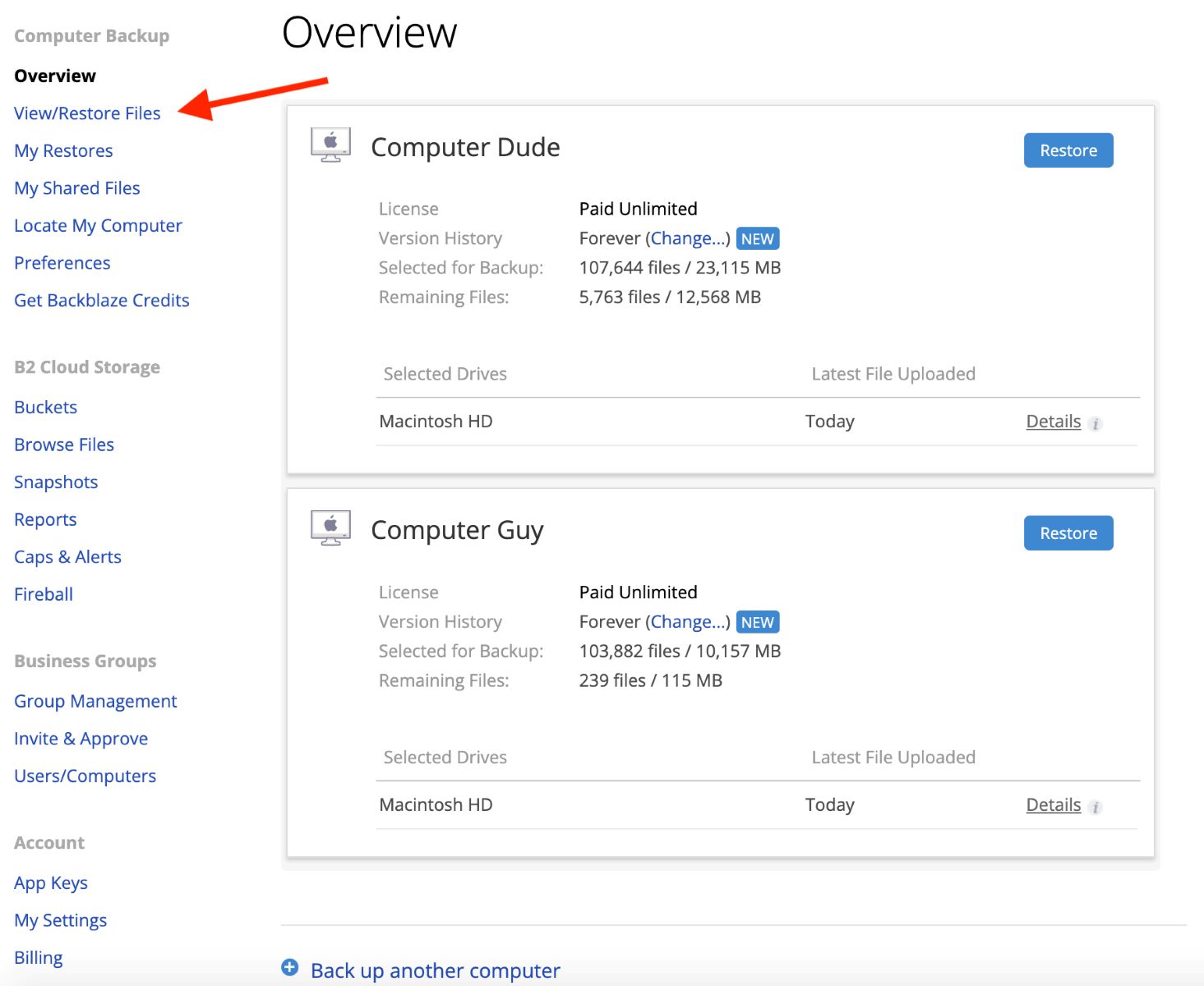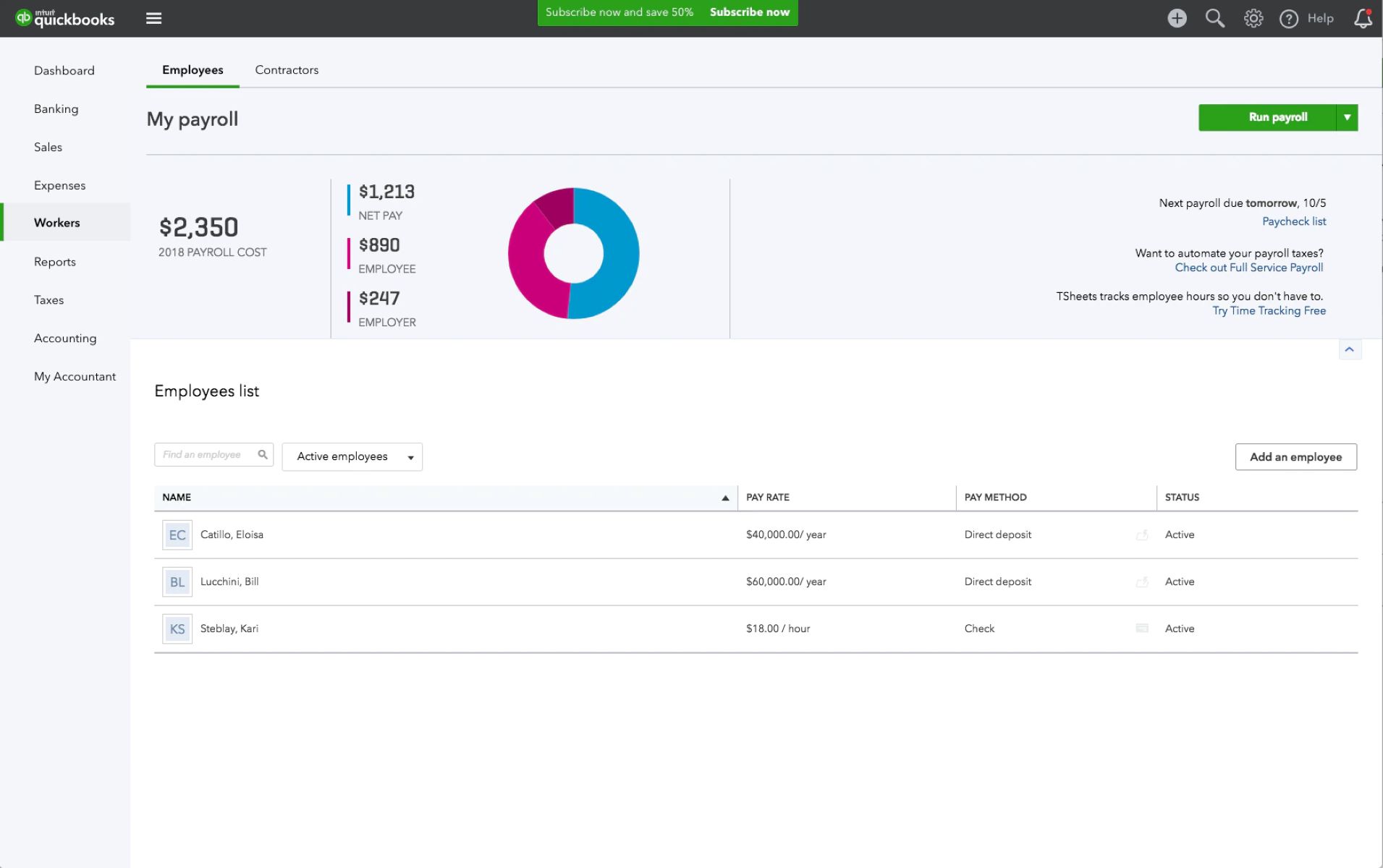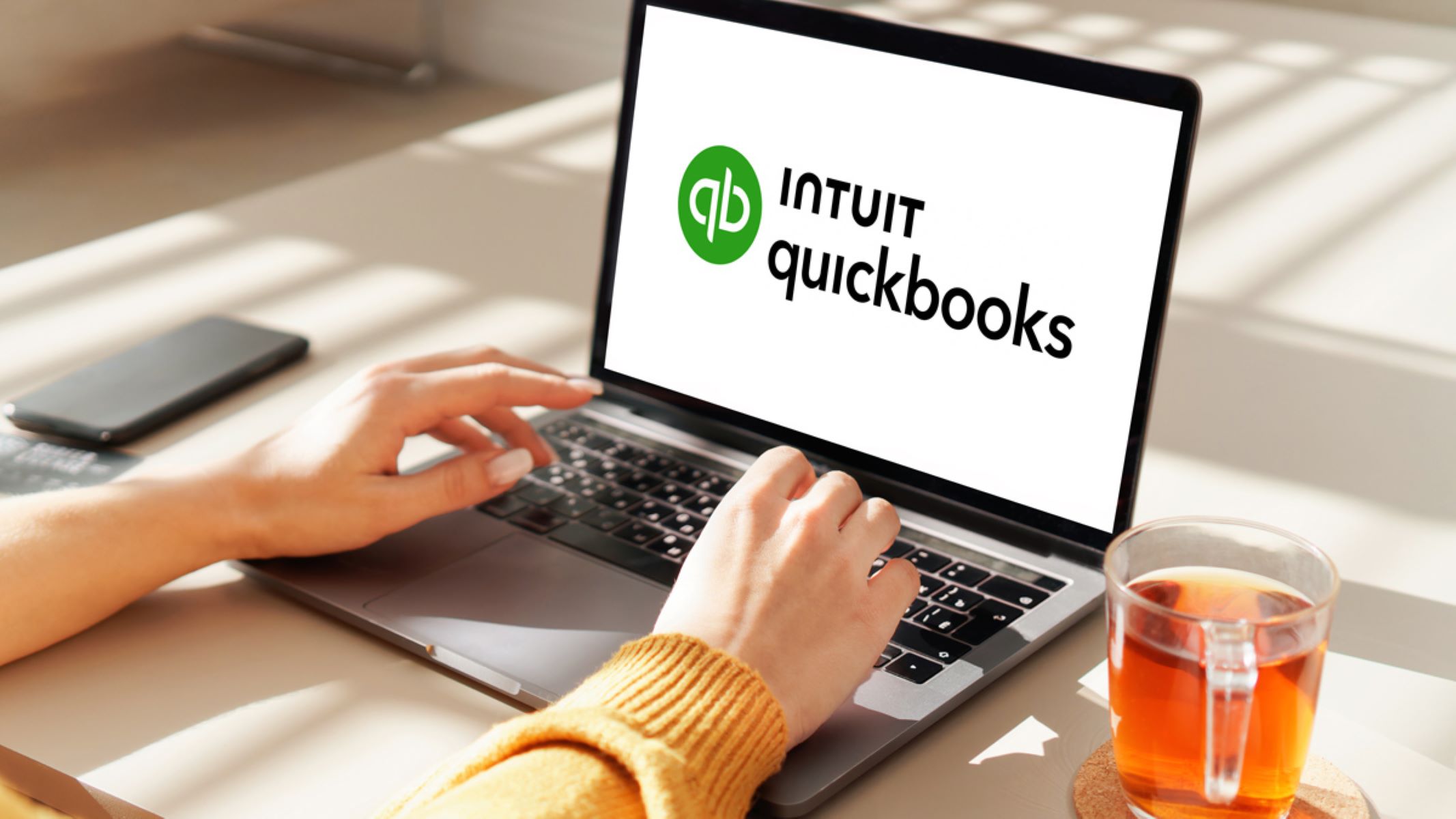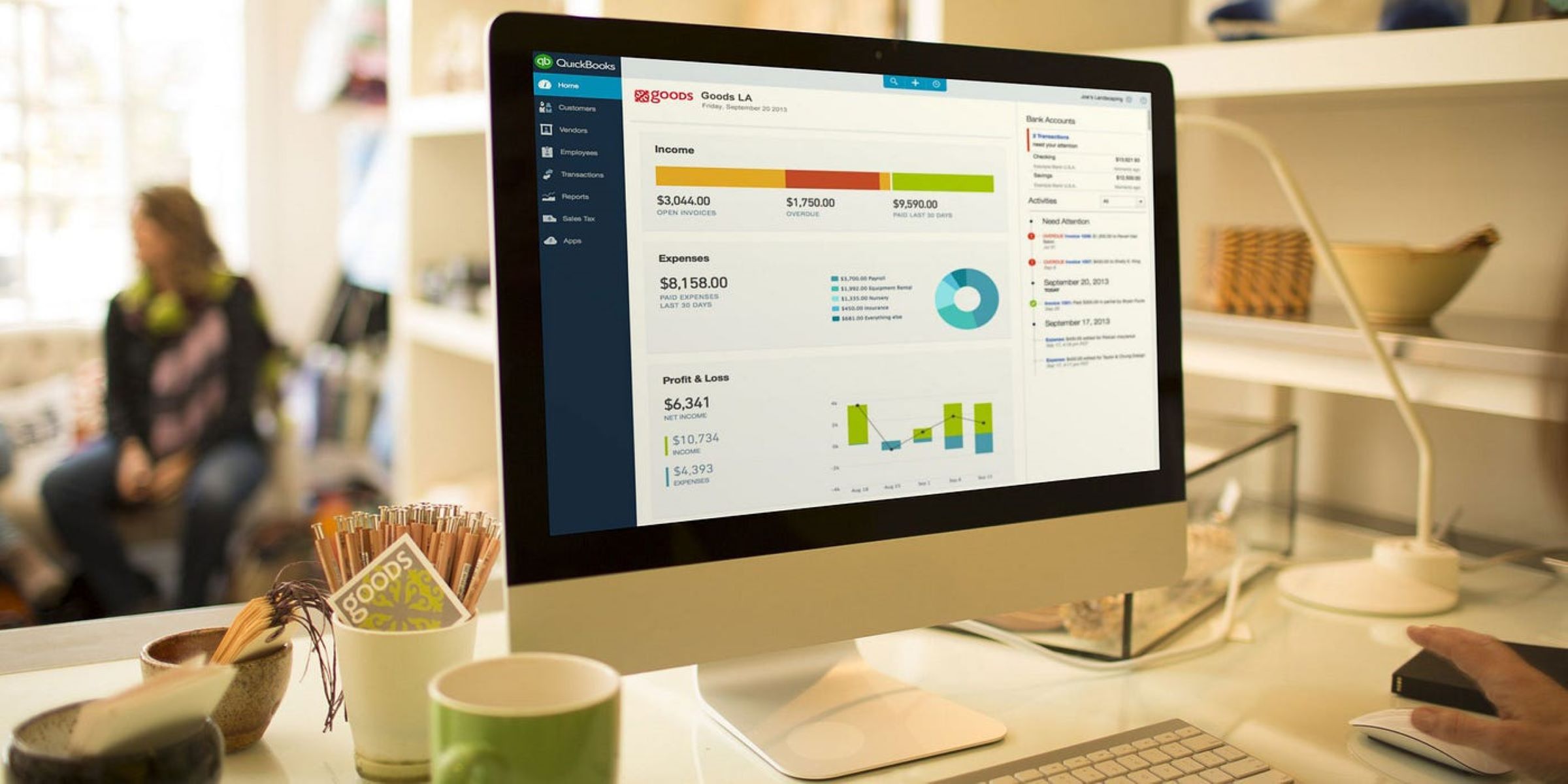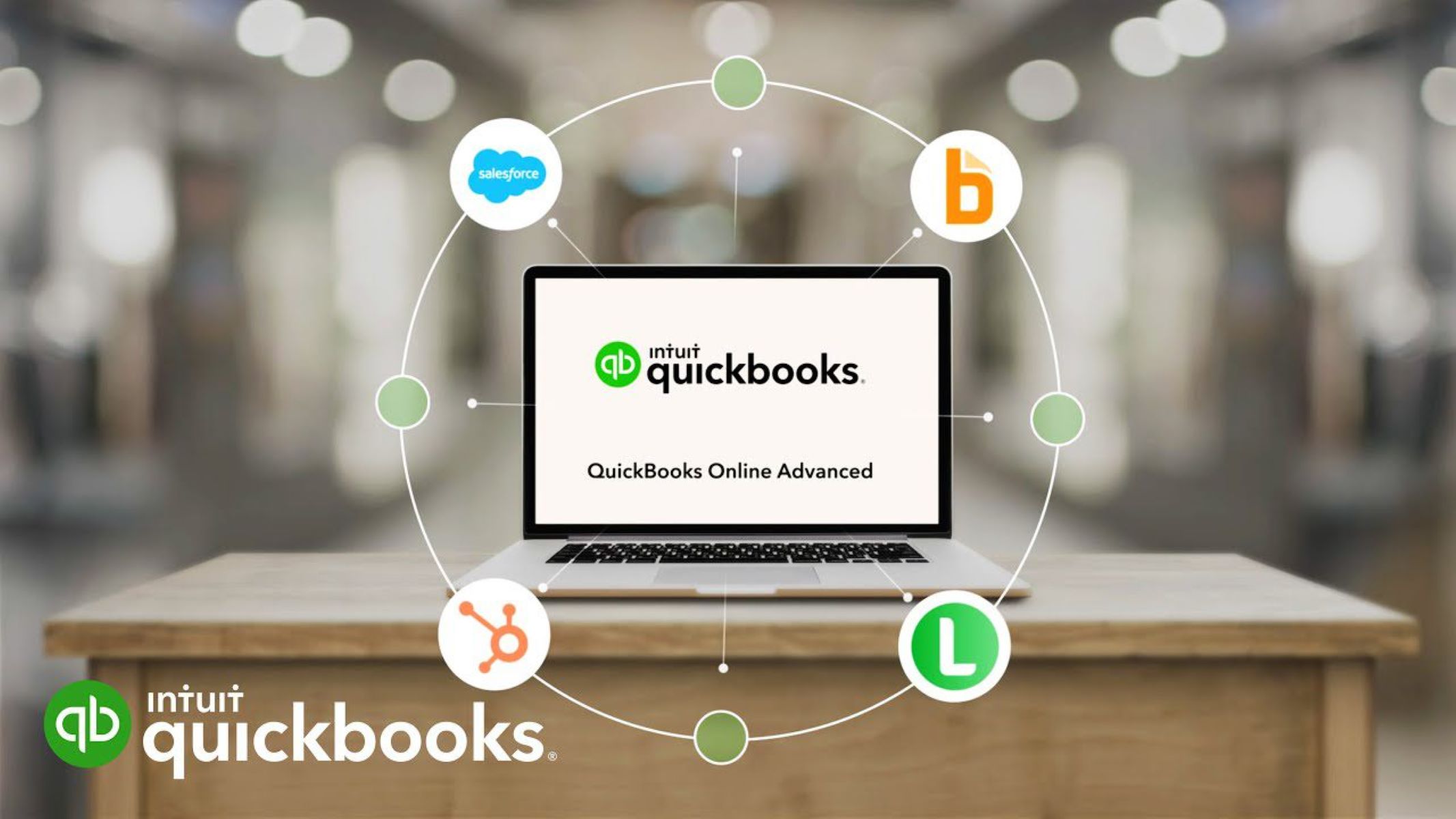Overview
In today’s digital age, managing your finances and keeping track of your business transactions has become essential for success. That’s where QuickBooks comes in. QuickBooks is a powerful accounting software designed for small and medium-sized businesses, providing a wide range of features to streamline your financial management processes. Whether you’re a sole proprietor, freelancer, or running a small business, QuickBooks can help you stay organized, save time, and make smart financial decisions.
With QuickBooks, you can easily manage your finances, track income and expenses, automate bookkeeping tasks, create professional invoices, track and pay bills, manage inventory, run reports, handle payroll, connect with your bank accounts, access your accounts on the go using mobile devices, collaborate with team members, prepare and file taxes, and integrate with third-party applications.
One of the primary benefits of using QuickBooks is its user-friendly interface, making it accessible to users with varying levels of financial knowledge. Whether you’re a seasoned accountant or just starting out, QuickBooks provides a seamless experience with intuitive navigation and robust features.
Furthermore, QuickBooks offers different versions to cater to the unique needs of various industries, such as QuickBooks Online for those who prefer cloud-based accounting, QuickBooks Desktop for more advanced features and customization options, and QuickBooks Self-Employed for freelancers and independent contractors.
Overall, QuickBooks is a comprehensive solution that simplifies your financial management tasks, saves you time and effort, and provides valuable insights into your business’s financial health. It enables you to focus on growing your business, improving cash flow, and making informed decisions based on accurate and up-to-date financial data.
Manage Your Finances
QuickBooks is a powerful tool for managing your finances and keeping your business organized. It provides a central hub for all your financial transactions, allowing you to track income, expenses, and manage your accounts with ease.
With QuickBooks, you can easily create and maintain a chart of accounts, which helps organize your finances into different categories such as revenue, assets, liabilities, and expenses. This allows for clear visibility into your financial performance and enables you to make informed decisions about your business.
Additionally, QuickBooks allows you to reconcile your bank accounts, ensuring that your records match your actual bank statements. This process helps detect any discrepancies and ensures the accuracy of your financial data.
Another valuable feature of QuickBooks is the ability to manage multiple currencies. If your business operates internationally or deals with foreign clients, QuickBooks can handle currency conversions and provide you with accurate financial information in your preferred currency.
Moreover, QuickBooks offers a variety of tools for budgeting and financial planning. You can set up budgets for different periods and track your actual expenses against these budgets. This helps you keep your spending in check and stay on top of your financial goals.
One of the standout features of QuickBooks is the ability to generate financial reports. These reports provide valuable insights into your business’s financial health and performance. You can easily generate reports such as profit and loss statements, balance sheets, cash flow statements, and more. These reports help you analyze your business’s financial performance, identify trends, and make data-driven decisions to improve your profitability.
Furthermore, QuickBooks enables you to create customizable financial dashboards. These dashboards provide a real-time snapshot of your business’s financials, allowing you to monitor key metrics and track your progress towards your financial goals.
Overall, QuickBooks provides robust tools for managing your finances, ensuring accuracy, and providing valuable insights into your business’s financial performance. By utilizing QuickBooks, you can streamline your financial management processes and focus on driving your business forward.
Track Income and Expenses
Tracking your income and expenses is crucial for maintaining a healthy financial outlook for your business. QuickBooks offers a comprehensive solution for efficiently managing this aspect of your finances.
With QuickBooks, you can easily record and categorize your income and expenses. The software allows you to create invoices to bill your clients and track payments received. You can also set up recurring invoices for regular clients, saving you time and effort.
On the expense side, QuickBooks enables you to enter and categorize all your business-related expenses. From office supplies to travel expenses, you can capture and track expenses in a systematic manner. This helps you maintain accurate financial records and simplifies the process of filing taxes.
Furthermore, QuickBooks simplifies the process of managing and tracking business expenses by allowing you to connect your bank and credit card accounts. This integration enables QuickBooks to automatically import and categorize expenses, reducing the need for manual data entry.
QuickBooks also provides valuable insights into your income and expenses through customizable reports. These reports provide an overview of your financial performance, allowing you to analyze your cash flow, identify areas of overspending, and make informed decisions about your business’s financial health.
In addition to tracking income and expenses, QuickBooks can also help you streamline the reimbursement process for employee expenses. You can easily enter and track expense claims submitted by your employees, making it easier to manage and process reimbursements.
Furthermore, QuickBooks allows you to integrate with popular payment platforms, such as PayPal and Square, enabling you to accept online payments from your customers. This streamlined payment process reduces the hassle of manual payment collection and provides a convenient and secure payment option for your clients.
Overall, QuickBooks provides efficient tools for tracking income and expenses. By utilizing this feature, you can ensure accurate financial records, analyze your business’s financial performance, and make informed decisions to help your business thrive.
Automate Bookkeeping Tasks
Bookkeeping tasks can be time-consuming and tedious, but QuickBooks offers automation features that can simplify and streamline your bookkeeping processes.
One of the key automation features in QuickBooks is the ability to connect your bank and credit card accounts. By syncing your accounts with QuickBooks, your transactions are automatically imported into the software, saving you from manual data entry. This automation not only saves time but also reduces the risk of errors.
Moreover, QuickBooks provides intelligent categorization for your transactions. As transactions are imported, QuickBooks can automatically assign them to the appropriate expense category, based on your previous categorization or machine learning algorithms. This eliminates the need to manually categorize each transaction, making bookkeeping more efficient.
In addition to transaction importing and categorization, QuickBooks offers the option to automate recurring transactions. This is particularly useful for expenses that occur on a regular basis, such as monthly subscriptions or rent payments. Once set up, QuickBooks will automatically create and post these transactions, saving you from repetitive data entry.
Another bookkeeping task that can be automated with QuickBooks is the reconciliation process. QuickBooks allows you to reconcile your bank and credit card accounts with your recorded transactions. The software compares your recorded transactions with your bank statements and highlights any discrepancies, making it easier to identify and resolve discrepancies quickly.
Furthermore, QuickBooks offers integration with popular third-party apps and services, further expanding its automation capabilities. For example, you can connect your e-commerce platform, such as Shopify or WooCommerce, to QuickBooks. This integration automatically synchronizes your sales and expenses, reducing the need for manual data entry and ensuring accurate financial records.
Overall, QuickBooks automates various bookkeeping tasks, saving you time and effort. By leveraging the automation features, you can streamline your bookkeeping processes, reduce manual errors, and focus on more strategic aspects of your business.
Create Professional Invoices
When it comes to billing your clients and ensuring timely payments, QuickBooks offers a range of features to help you create professional invoices efficiently.
With QuickBooks, you can easily customize your invoices to match your brand identity. You can add your company logo, choose a color scheme, and personalize the layout of your invoices. This allows you to create professional-looking invoices that reflect your business’s image.
Furthermore, QuickBooks provides pre-designed invoice templates that you can customize to suit your specific needs. These templates include all the necessary fields, such as billing details, item descriptions, quantities, and prices. You can also add personalized messages or terms and conditions to your invoices.
QuickBooks saves you time by automating the process of invoicing. You can create recurring invoices for clients with ongoing services or products, ensuring you never miss a billing cycle. Additionally, you can set up automatic reminders for overdue payments, helping you maintain a healthy cash flow and minimize late payments.
Once you’ve created an invoice, you can easily track its status within QuickBooks. The software allows you to see if an invoice has been sent, viewed, or paid. This visibility ensures that you can follow up on outstanding invoices and take necessary actions to secure timely payments.
Invoices created in QuickBooks can be sent directly to your clients via email. This eliminates the need for manual printing and mailing, saving you time, and reducing paper waste. QuickBooks also allows you to add a payment link to your invoices, giving your clients the option to pay online, further streamlining the payment process.
Moreover, QuickBooks integrates seamlessly with popular payment gateways, such as PayPal and Stripe. This integration allows you to accept online payments directly through your invoices, improving convenience for your clients and accelerating the payment process.
Overall, QuickBooks simplifies the process of creating professional invoices and helps you streamline your billing and payment collection. By utilizing the invoicing features, you can present a polished and organized image to your clients and ensure timely payments for your products or services.
Track and Pay Bills
Keeping track of your business expenses and managing your bills can be a time-consuming task, but QuickBooks offers robust features to simplify the process and ensure timely payments.
With QuickBooks, you can easily enter and categorize your bills as they come in. You can attach receipts or supporting documents to each bill, making it easier to reference them in the future. The software also allows you to set due dates and payment terms for each bill, ensuring that you stay on top of your payment obligations.
QuickBooks provides a centralized dashboard where you can view and manage all your outstanding bills. This gives you a comprehensive overview of your payables and helps you prioritize the bills that need immediate attention. You can easily see which bills are overdue, which are upcoming, and which have been paid.
Once your bills are entered into QuickBooks, the software enables you to set up payment reminders. These reminders can be sent to your email or within the QuickBooks platform, ensuring that you never miss a payment deadline and incur late fees.
Furthermore, QuickBooks allows you to track your expenses and bills against specific projects or clients. This feature is particularly useful for businesses that bill their clients based on project costs or expenses. You can easily generate reports that highlight the expenses incurred for each project or client, facilitating accurate billing and ensuring proper cost allocation.
When it comes to paying your bills, QuickBooks simplifies the process by offering integrated payment options. You can connect your bank accounts to QuickBooks and set up electronic funds transfer (EFT) payments directly within the software. This streamlines the payment process, eliminates the need for physical checks, and speeds up the payment cycle.
Moreover, QuickBooks integrates with popular payment platforms such as Bill.com, allowing for seamless bill payments. You can pay your bills electronically and even schedule recurring payments, saving you time and reducing the hassle of manual payment processing.
Overall, QuickBooks provides robust tools for tracking and paying bills. By utilizing these features, you can efficiently manage your payables, ensure timely payments, and maintain a clear overview of your business expenses.
Manage Inventory
For businesses that deal with physical products, effective inventory management is crucial to ensure smooth operations and optimize profitability. QuickBooks offers a range of features to help you efficiently manage your inventory.
With QuickBooks, you can easily add and track your inventory items. The software allows you to input detailed information about each item, such as SKU, description, cost, and selling price. You can also include additional details such as weight, size, and supplier information.
QuickBooks provides an inventory center where you can view and manage all your inventory items in one place. This centralized dashboard gives you a comprehensive overview of your items, including quantity on hand, value, and reorder points. You can easily search for specific items, track sales, and make adjustments to your inventory levels.
One of the notable features of QuickBooks is the ability to set up inventory tracking methods. You can choose between the average cost method or the first-in-first-out (FIFO) method, depending on your business needs and accounting preferences. These tracking methods enable you to accurately calculate the cost of goods sold and monitor your inventory’s value.
QuickBooks also offers functionality for creating purchase orders. You can easily generate purchase orders for your suppliers based on reorder points or specific sales orders. This simplifies the process of restocking your inventory and ensures that you have the necessary stock levels to meet customer demand.
Furthermore, QuickBooks provides reporting capabilities to analyze your inventory performance. You can generate reports that show your top-selling products, slow-moving items, and inventory valuation. These insights help you make informed decisions about your inventory management, identify potential issues, and optimize your purchasing and pricing strategies.
In addition to managing your own inventory, QuickBooks offers integration with select e-commerce platforms. This allows you to automatically sync your online sales and update your inventory levels in real-time. By integrating your online sales with QuickBooks, you can ensure accurate inventory tracking and avoid overselling or stockouts.
Overall, QuickBooks provides powerful tools for managing your inventory effectively. By utilizing these features, you can maintain optimal stock levels, track sales and costs accurately, and make data-driven decisions to maximize profitability.
Run Reports
As a business owner, having access to timely and accurate financial reports is essential for making informed decisions and evaluating the health of your business. QuickBooks offers a wide range of reporting options to help you gain valuable insights into your financial performance.
With QuickBooks, you can generate standard financial reports, such as profit and loss statements, balance sheets, and cash flow statements. These reports provide an overview of your business’s financial health and help you identify trends, spot potential issues, and make informed decisions about your operations.
In addition to standard financial reports, QuickBooks offers customizable reporting options. You can tailor reports to meet your specific needs by selecting the relevant data, adding or removing columns, and applying filters. This flexibility allows you to dig deeper into your financial data and analyze specific aspects of your business.
QuickBooks also provides industry-specific reports that are tailored to the unique needs of different businesses. Whether you’re in retail, construction, professional services, or any other industry, QuickBooks offers reports that provide key metrics and insights specific to your business type.
Furthermore, QuickBooks offers reporting options for tracking sales and customer performance. You can generate sales reports to analyze your revenue streams, identify your top-selling products or services, and evaluate the performance of your sales team. Customer reports allow you to analyze customer behavior, track customer balances, and identify your most valuable customers.
Another valuable reporting feature in QuickBooks is the ability to compare your financial data across different periods. You can generate comparative reports that show year-over-year or month-over-month comparisons, allowing you to identify trends and assess your business’s performance over time.
QuickBooks also offers the ability to schedule and automate report generation. You can set up reports to be generated and emailed to you on a regular basis, ensuring that you have up-to-date information without manual intervention.
Overall, QuickBooks provides a robust reporting system that allows you to analyze your financial data and gain valuable insights into your business’s performance. By utilizing these reporting features, you can make informed decisions, identify areas for improvement, and drive your business forward.
Payroll Management
Managing payroll is a crucial aspect of running a business, and QuickBooks offers a comprehensive solution to streamline the payroll process and ensure accurate and timely payments to your employees.
One of the key features of QuickBooks is its integrated payroll management system. With QuickBooks Payroll, you can easily calculate and process payroll for your employees. The software automatically calculates wages, deductions, and taxes based on the information you provide for each employee.
QuickBooks allows you to set up and manage employee profiles, including their contact information, tax settings, and payment details. You can also track and manage employee hours, overtime, and time off within the platform.
In addition, QuickBooks Payroll simplifies the payroll tax filing process. The software automatically calculates and deducts payroll taxes from employee wages, ensuring compliance with federal and state regulations. It also generates payroll tax forms, such as W-2 and 1099, and provides reminders for filing deadlines.
QuickBooks Payroll integrates seamlessly with the rest of your QuickBooks accounting system. This integration ensures that payroll transactions are accurately recorded in your financial statements, making it easier to reconcile and report payroll expenses.
Furthermore, QuickBooks offers direct deposit functionality, allowing you to pay your employees via direct bank transfers. This secure and efficient payment method eliminates the need for paper checks and reduces administrative tasks.
Another notable feature of QuickBooks Payroll is its ability to handle payroll taxes for multiple states or jurisdictions. If your business operates in different locations, QuickBooks can accurately calculate and allocate payroll taxes based on the applicable tax rules and regulations.
QuickBooks also offers employee self-service portals, where your employees can access their pay stubs, tax forms, and update their personal information. This feature reduces administrative tasks and provides employees with convenient access to their payroll information.
In addition to managing regular payroll, QuickBooks Payroll can also handle additional compensation elements such as bonuses and commissions. You can easily set up and process these additional payments within the platform.
Overall, QuickBooks Payroll provides a comprehensive solution for managing your payroll processes. By utilizing its features, you can ensure accurate and timely payroll processing, simplify payroll tax compliance, and provide a seamless experience for your employees.
Connect with Your Bank Accounts
Connecting your bank accounts with QuickBooks offers several benefits, including streamlined financial management and increased accuracy in recording transactions.
QuickBooks allows you to link your bank and credit card accounts directly to the software. This integration enables QuickBooks to import your banking transactions automatically, saving you time and reducing the chances of manual data entry errors.
Once your accounts are connected, QuickBooks categorizes your transactions based on previous entries or intelligent algorithms. This automatic categorization simplifies the process of reconciling your accounts and ensures that your financial records are accurate and up to date.
Another advantage of connecting your bank accounts with QuickBooks is the ability to view your account balances and transactions in real-time. This gives you an accurate snapshot of your financial position, allowing you to make informed decisions about spending, budgeting, and cash flow management.
With bank account integration, you can also simplify the process of recording payments and expenses. For example, when you receive a payment from a customer, QuickBooks can match it to the corresponding transaction in your bank account, automatically recording the payment and marking it as reconciled.
Additionally, bank account integration allows you to easily track and manage your business’s cash flow. QuickBooks can generate cash flow statements that provide insights into your incoming and outgoing funds, helping you monitor liquidity and make informed decisions about financial management.
Furthermore, connecting your bank accounts with QuickBooks enhances your ability to generate accurate financial reports. Since your bank transactions are directly imported and categorized, you can rely on the reports generated by QuickBooks for an accurate representation of your financial performance.
QuickBooks supports integration with a wide range of banks and financial institutions, making it convenient for businesses with various banking relationships. Whether you have accounts with major banks or local credit unions, chances are QuickBooks can connect with your financial institution.
Overall, connecting your bank accounts with QuickBooks streamlines your financial management, improves accuracy in recording transactions, and provides real-time visibility into your financial position. By leveraging this integration, you can make informed decisions about your business’s finances and drive your success.
Mobile Access and Integration
In today’s fast-paced business environment, having mobile access to your financial data is essential for staying productive and making informed decisions on the go. QuickBooks offers mobile access and integration features that enable you to manage your business finances anytime, anywhere.
QuickBooks provides mobile apps for iOS and Android devices, allowing you to access your financial information from your smartphone or tablet. These apps provide a user-friendly interface that allows you to perform various tasks, such as creating and sending invoices, reviewing expense transactions, and tracking your cash flow.
With the mobile apps, you can stay connected to your business no matter where you are. You can view and update customer information, track sales and expenses, and monitor the status of your invoices. This real-time access to your financial data enables you to make informed decisions on the fly and respond quickly to customer inquiries.
QuickBooks mobile apps also support the integration of third-party applications. For example, you can connect your payment processing app, e-commerce platform, or time tracking app to QuickBooks. This integration allows for seamless data flow between your business applications, reducing manual data entry and ensuring that your financial records are accurate and up to date.
Moreover, with mobile access, you can capture and upload receipts directly from your device’s camera. This eliminates the need for manual receipt tracking and ensures that your expense records are complete. You can also attach receipts to specific transactions within QuickBooks, providing a comprehensive view of your expenses.
Whether you’re traveling for business or simply need to manage your financials on the go, QuickBooks mobile access ensures that you have the flexibility to stay connected and productive. The ability to access and update your financial data from anywhere, combined with the integration capabilities, empowers you to efficiently run your business from the palm of your hand.
In summary, QuickBooks offers mobile access and integration features that enable you to manage your business finances on the go. With the mobile apps and integration capabilities, you can stay connected, make informed decisions, and streamline your financial processes, no matter where you are.
Collaboration and User Permissions
QuickBooks understands the importance of collaboration and the need for controlled access to financial information. That’s why it offers collaboration features and user permissions that allow you to work seamlessly with your team while ensuring data security and privacy.
With QuickBooks, you can invite team members or accountants to collaborate on your financial records. You can assign different roles and permissions to each user, giving them appropriate access based on their responsibilities. This ensures that sensitive financial data is only accessible to authorized individuals.
For example, you can grant your accountant access to specific reports or financial transactions, allowing them to review and analyze your financial data. Meanwhile, you can limit the access of other team members to transaction entry or customer management, ensuring that they focus on their specific tasks without compromising data security.
QuickBooks provides multiple user roles, such as admin, standard user, and restricted access user, each with varying levels of access and control. This flexibility enables you to tailor user permissions to match your organization’s structure and security requirements.
In addition to user permissions, QuickBooks allows for seamless collaboration with your team. You can leave comments or notes on specific transactions or reports, providing context or instructions for your team members. This helps streamline communication and ensures that everyone has access to the necessary information.
Furthermore, QuickBooks provides a shared document center where you can store and share files related to your financial records. This centralized repository ensures that all relevant documents, such as contracts, receipts, or agreements, are easily accessible to authorized team members.
Collaboration in QuickBooks is not limited to internal team members. The software also allows for collaboration with external stakeholders, such as your accountant or tax advisor. You can securely share your financial data with them, ensuring efficient collaboration and accurate advice.
Overall, QuickBooks offers collaboration and user permission features that promote teamwork, streamline communication, and ensure data security. By leveraging these features, you can work efficiently and effectively with your team members, accountants, and other stakeholders, while maintaining control over your financial information.
Tax Preparation and Filing
When it comes to tax preparation and filing, QuickBooks provides a range of features to simplify the process, ensure accuracy, and save you time and effort.
QuickBooks integrates seamlessly with tax software, such as TurboTax, to streamline the preparation and filing of your business taxes. The software can export your financial data directly into tax software, eliminating the need for manual data entry and reducing the risk of errors.
QuickBooks also offers tax tracking functionality to help you stay organized throughout the year. You can categorize expenses, track deductions, and generate reports specifically designed for tax preparation. These reports provide a clear overview of your income and expenses, making it easier to identify potential deductions and ensure accurate tax filing.
Furthermore, QuickBooks enables you to generate tax forms for employees and contractors. Whether you need to issue W-2s or 1099s, QuickBooks can automatically fill in the necessary information and generate the required forms. This feature saves time and ensures that you comply with tax regulations.
In addition to tax preparation, QuickBooks supports electronic filing (e-filing) of your tax returns. You can electronically transmit your tax forms directly to the IRS or relevant tax authorities, reducing the need for paper-based filing and providing a faster and more efficient process.
QuickBooks also assists with sales tax compliance. The software can automatically calculate and track sales tax based on the tax rates of specific jurisdictions. This feature simplifies the process of collecting and remitting sales tax and reduces the chances of errors.
Moreover, QuickBooks offers integration with certified tax professionals or tax advisory services. If you need assistance with complex tax matters or have specific questions, you can connect with a tax expert directly from within the QuickBooks platform. This integration ensures that you have access to the expertise you need to navigate the complexities of tax compliance.
Overall, QuickBooks provides comprehensive tax preparation and filing features that simplify the process and improve accuracy. By utilizing these features, you can save time, ensure compliance with tax regulations, and have peace of mind knowing that your tax obligations are being met accurately and efficiently.
Third-Party App Integration
QuickBooks understands that every business has unique needs, and that’s why it offers seamless integration with a wide range of third-party applications. These integrations enhance the functionality of QuickBooks by allowing you to connect with other business tools and streamline your workflows.
QuickBooks integrates with various types of applications, including payment processors, e-commerce platforms, time tracking tools, project management software, customer relationship management systems, and more. This integration allows for the seamless exchange of data between QuickBooks and these applications.
One of the key benefits of third-party app integration with QuickBooks is the automation of data entry. For example, if you use an e-commerce platform to sell products online, integrating it with QuickBooks will automatically sync your sales data, inventory levels, and customer information. This eliminates the need for manual data entry and ensures accurate and up-to-date records.
Payment integration is another valuable feature of QuickBooks. By connecting your payment processor, such as PayPal or Stripe, to QuickBooks, you can easily track and reconcile your sales transactions. This integration streamlines the payment process, improves accuracy, and simplifies the task of tracking receivables.
Integrating time tracking tools with QuickBooks allows for accurate and efficient tracking of employee hours. You can seamlessly import time data into QuickBooks, making it easier to calculate payroll, analyze project costs, and ensure accurate billing to clients.
Furthermore, integrating customer relationship management (CRM) systems with QuickBooks provides a holistic view of your customer interactions and financial transactions. You can easily sync customer data, track sales opportunities, and generate sales reports that combine financial and customer information. This integration helps streamline sales and improves customer relationship management.
Additionally, QuickBooks offers integration with project management software, enabling you to track project costs and profitability. You can easily sync project budgets, expenses, and billing information between QuickBooks and project management tools, ensuring that all financial data is accurate and up to date.
The flexibility and compatibility of QuickBooks with third-party apps extend beyond the examples mentioned above. QuickBooks offers a robust app marketplace where you can explore a wide range of integrations to enhance the functionality of your accounting software and streamline your business processes.
By leveraging third-party app integrations with QuickBooks, you can optimize your workflows, reduce manual data entry, and improve the accuracy and efficiency of your business operations. These integrations help you customize QuickBooks to suit your specific business needs and empower you to work smarter and more effectively.
Conclusion
QuickBooks is a powerful accounting software that offers a wide range of features to help small and medium-sized businesses manage their finances effectively. From tracking income and expenses to automating bookkeeping tasks, creating professional invoices, managing inventory, and running reports, QuickBooks provides a comprehensive solution for financial management.
With QuickBooks, businesses can easily manage their finances, track income and expenses, automate bookkeeping tasks, and create professional invoices. The software offers robust features for tracking and paying bills, managing inventory, and running reports to gain valuable insights into financial performance.
QuickBooks also excels in providing payroll management capabilities, facilitating seamless processing of employee payments, tax calculations, and filing. Moreover, QuickBooks offers mobile access and integration options, allowing users to manage their finances on the go and integrate with other business tools for enhanced productivity.
Collaboration and user permissions features enable businesses to work efficiently as a team while maintaining data security and privacy. Additionally, QuickBooks simplifies tax preparation and filing, automating data transfer to tax software and generating necessary tax forms.
The integration capabilities of QuickBooks with various third-party applications provide businesses with the flexibility to customize and extend the functionality of the software. By integrating with payment processors, e-commerce platforms, time tracking tools, and more, businesses can streamline their workflows and eliminate manual data entry.
In conclusion, QuickBooks offers a comprehensive suite of features that empower businesses to effectively manage their finances and make informed decisions. From tracking transactions to generating reports, streamlining payroll, facilitating collaboration, preparing taxes, and integrating with third-party apps, QuickBooks provides the tools necessary for financial success.







